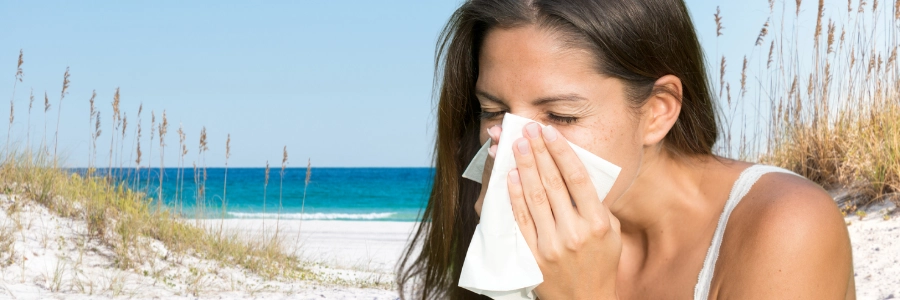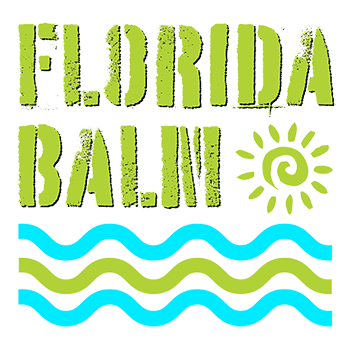
Worst Months for Allergies in Florida
Florida can be an amazing place, but if you’re prone to allergies you may want to watch out!
Unlike many other states that experience seasonal relief, Floridians often find themselves battling allergies for most of the year.
Understanding the worst months for allergies in Florida can help you better prepare and manage your symptoms.

Seasonal Allergies in Florida
While Florida doesn’t have a traditional “allergy season” like many other states, certain times of the year tend to be worse for those with allergies.
- March to May: This period typically marks the peak of tree pollen season in Florida. Trees like oak, hickory, pecan, and pine release large amounts of pollen, leading to increased allergy symptoms.
- April to July: Grass pollen is at its highest during these months. Bermuda, Bahia, and Johnson grasses are common culprits.
- August to October: Weed pollen, particularly ragweed, becomes a significant allergen.
It’s important to note that these are general trends, and the severity of allergy symptoms can vary depending on the specific location within Florida.
Allergies in Florida Right Now
To get real-time information about the allergens currently affecting your area, you can check the pollen count on websites like:
Check current Florida air quality and pollen counts: IQ Air Florida
This website provides up-to-date information on pollen levels and the predominant allergens in the region.

Common Allergens in Florida
Beyond pollen, several other factors can trigger allergies in Florida:
- Mold: Florida’s humid climate creates ideal conditions for mold growth, both indoors and outdoors.
- Dust mites: These microscopic creatures thrive in warm, humid environments and are a common indoor allergen.
- Pet dander: Animal allergies are prevalent, with cats, dogs, and even rodents contributing to allergy symptoms.
- Cockroaches: These pests can trigger allergic reactions in some people.
- Air pollutants: Pollution, especially in urban areas, can worsen allergy symptoms.
- Tropical fruits: While rare, it’s possible to have allergies to tropical fruits like mangoes, avocados, or citrus.
- Beach and saltwater: While not as common as pollen or mold, some individuals might experience skin irritations or allergic reactions to beach sand or saltwater.
Beyond Sneezing: Allergy-Related Issues
Allergic reactions can manifest in various ways beyond the typical sneezing, runny nose, and itchy eyes. Some people experience:
- Allergies and joint pain: Joint discomfort can be associated with allergic reactions.
- Allergies and nosebleeds: Frequent nosebleeds can be a symptom of allergies, especially when nasal passages are dry and irritated.
- Allergies and gut health: Allergies can impact the digestive system, leading to issues like bloating, diarrhea, or constipation.
Home Remedies for Allergy Relief
While over-the-counter medications can help manage allergy symptoms, many people find relief through natural remedies:
- Nasal irrigation: Using a saline solution to rinse the nasal passages can help remove allergens.
- Local honey: Some people believe consuming local honey can build immunity to local pollen.
- Air purifiers: Using an air purifier with a HEPA filter can help reduce indoor allergens.
- Showering after outdoor activities: Removing pollen from your body by showering can help alleviate symptoms.
- Change bedding regularly: Washing bedding in hot water can kill dust mites.
Remember, if your allergies are severe or significantly impacting your quality of life, it’s essential to consult with an allergist for proper diagnosis and treatment.
By understanding the worst months for allergies in Florida and taking proactive steps to manage your symptoms, you can enjoy the Sunshine State to the fullest.
The Mighty Melaleuca Tree Misconception
The mighty melaleuca trees have been blamed for decades, for severe allergies in Florida. They flower throughout most of the year, so their pollen was thought to be a major cause of allergy symptoms.
However, melaleuca trees pollination happens with bees (not wind). This means the pollen does not blow away and into the air causing air quality issues.
It IS true that when allergy tests are given in a doctor’s office, there are lots of people that test positive for allergies to this tree pollen. But the reality is they would not be readily exposed to this tree pollen.
While recent experts have mostly concluded that these trees have a minimal impact on allergy symptoms, the primary culprits remain grass and trees that pollinate by wind.
As an Amazon Associate I earn from qualifying purchases at no additional cost to you.


